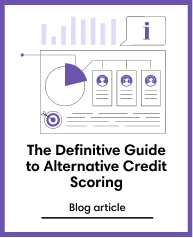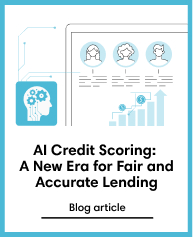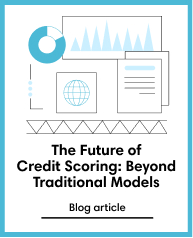Credit Scoring
Dec 17, 2021
Financial technology: the long-awaited solution to a low credit score
Subscribe to our newsletter
A credit score indicates whether a person is trustworthy, in other words, if the individual is capable of acquiring debt and meeting the established payment terms. The higher the score, the higher the reliability and the more likely the person is to acquire a loan. On the contrary, the lower the score, the fewer the possibilities of obtaining a credit which usually translate into higher rates.
In traditional rating models, scores are obtained based on the analysis of a person's credit history, which is a report that describes their financial movements and statements. Given that the financial situation of an individual can change from application to application, the credit study is not performed just once but every time someone applies for a loan. In consequence, a person’s scoring is not static, but can decrease or increase over time.
Some of the reasons for a low credit score include:
- Payment delay of a credit card fee.
- Applying for many credit cards or loans at the same time.
- Having a low credit extension.
- Reaching the card´s total amount repeatedly or due to unexpected expenses.
- Not meeting the age requirements for obtaining a credit card
- Using cash only and not being part of the banking system.
Traditional credit scores can be very restrictive for people, who despite being solvent, lack a strong credit history. The real problem stems from the fact that these types of scores don’t have the financial technology to comprehend that banking history is not the only indicator to create an updated and complete credit profile.
With the emergence of new fintech companies, credit models based on alternative data and artificial intelligence are providing solutions to reliable people with low credit scores. These new alternative scorings, carried out in real time, make non-linear predictions capable of taking into account not only the past, but also modeling future behavior. In this sense, the profiles are much more accurate and don’t depend on the credit history, but rather conclude the credit profiles with countless data on the person's actual behaviors.
The new alternative credit scoring model proposed by fintech startups such as credolab use information with behavioral data including social networks, mouse movements, online purchases, application payments, telephone bills and rentals, among others. This data is updated following up the credit profile of each person in real time. In this way, credit scores become more dynamic and accurate, allowing people to raise their scores and companies to incorporate new valuable clients.





